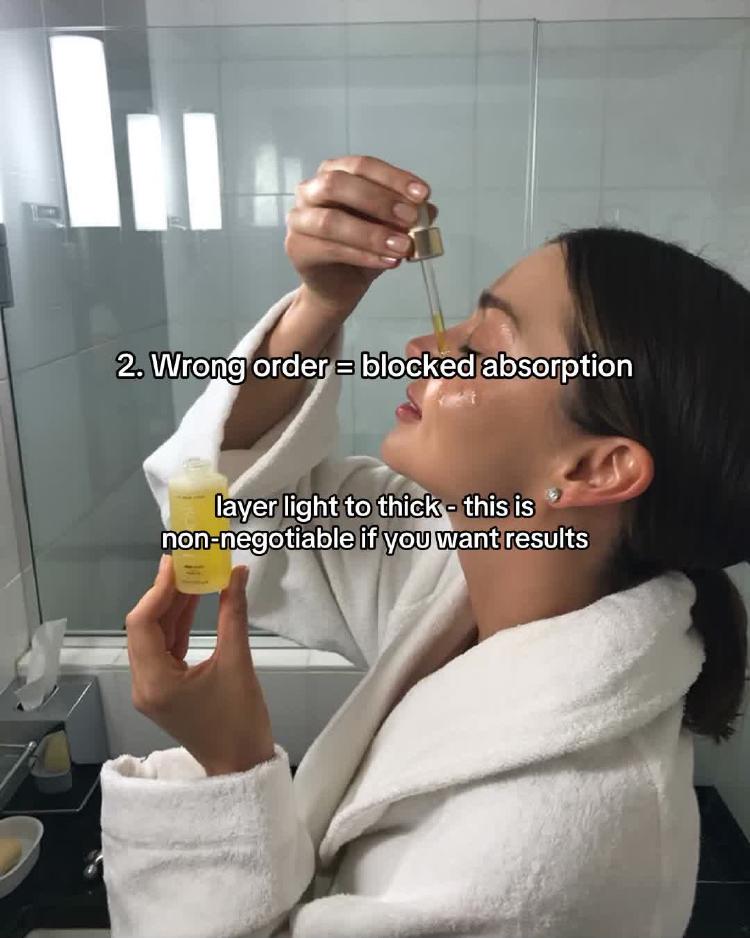Unlock Radiant Skin: Your Essential Skincare Routine Guide
Learn essential AM/PM routines, ingredient science, and expert tips for healthy, glowing skin tailored to your needs.

- Seo Yuna
- 5 min read

Navigating the world of skincare can feel overwhelming with countless products and conflicting advice. Building an effective routine doesn’t require dozens of steps or expensive potions. This guide breaks down the fundamentals, based on shared knowledge, research, and professional insights, to help you establish a solid foundation for healthy, radiant skin.
Remember, skincare is a personal journey, and what works for one person may not work for another. Patience and experimentation are key.
The Essential Basic Routine
Start simple before adding specialized treatments.
Morning (AM):
- Cleanse
- Moisturize
- Sunscreen
Evening (PM):
- Cleanse
- Treat (e.g., with an active ingredient)
- Moisturize
From this core, you can customize based on your skin type and concerns.
Customizing Your Routine
- Oily Skin: You might incorporate anti-redness toners, BHA spot treatments, oil-free or gel moisturizers, and non-greasy sunscreens. Double cleansing in the evening can also be beneficial.
- Dry Skin: Consider layering hydrating toners (sometimes multiple layers), using richer, heavier moisturizers, and potentially adding facial oils.
Start by introducing one new product at a time. This helps you identify what works and what might cause a reaction. Always patch test a new product on a small area of skin before applying it everywhere. Everyone’s skin is different; ingredients like silicones or zinc are fine for some but problematic for others.
Key Skincare Principles & Ingredients to Understand
Focus on the science behind ingredients rather than marketing hype. Not all expensive or ’natural’ products are effective or gentle.
- Sunscreen is Non-Negotiable: Apply broad-spectrum SPF daily, regardless of weather or whether you’re indoors. UV radiation and blue light can damage skin even on cloudy days or through windows. Don’t forget a lip balm with SPF!
- Alcohol in Skincare: Be wary of simple drying alcohols like alcohol denat, SD alcohol, or ethanol, especially high up on the ingredient list. However, fatty alcohols (like cetyl, stearyl, or cetearyl alcohol) are beneficial emollients that help skin feel smooth. The overall formulation and concentration matter.
- Fragrance: Perfumes and synthetic fragrances are common irritants for many skin types, especially sensitive skin. Look for fragrance-free options if irritation is a concern.
- Double Cleansing: This involves using an oil-based cleanser (like an oil or balm) first to break down makeup, sunscreen, and excess oil, followed by a water-based cleanser (gel, foam, liquid) to wash away residue and dirt. The goal is clean, not ‘squeaky clean,’ which can strip the skin’s moisture barrier. Remember to be gentle!
- The Moisture Barrier: A healthy skin barrier is crucial for all skin types, even oily ones. When it’s compromised, skin becomes vulnerable to irritation, dryness, and breakouts.
- Hydration vs. Moisturization: Hydration refers to adding water to the skin (humectants like hyaluronic acid help), while moisturization is about sealing that water in and preventing loss (emollients and occlusives in moisturizers). Some moisturizers do both.
- Toners: While historically used for pH, modern toners primarily serve as a hydrating step, adding a layer of moisture before serums and moisturizers. Don’t overcomplicate their purpose.
- Exfoliation: Chemical exfoliants (like AHAs, BHAs, PHAs) help remove dead skin cells, improving texture, tone, hyperpigmentation, and acne scars. Introduce them slowly, one at a time, to avoid over-exfoliation, which can damage the barrier. Glycolic acid (an AHA) has research suggesting benefits for collagen formation.
Potent Active Ingredients Backed by Research
Certain ingredients are backed by significant research for their effectiveness in addressing specific concerns, particularly signs of aging and acne.
- Retinoids (including Retinol): These are powerful ingredients for improving skin texture, tone, reducing wrinkles, and treating acne. Prescription-strength options like Tretinoin are generally the most potent. While many over-the-counter (OTC) retinols exist, their efficacy varies. Some OTC retinoids like Adapalene (Differin) or well-formulated high-concentration retinols (e.g., Paula’s Choice 1%) are effective, though they may work differently or slower than prescriptions. Products like Dermatica or Curology often provide prescription-strength retinoids.
- Vitamin C: A powerful antioxidant that helps protect against environmental damage, brightens the complexion, and supports collagen production. L-Ascorbic Acid is a highly effective form but is prone to oxidation. Look for stable formulations or derivatives. Once a Vitamin C product oxidizes (often changing color), its effectiveness is significantly reduced.
- Niacinamide (Vitamin B3): A versatile ingredient that helps strengthen the skin barrier, reduce redness and inflammation, regulate oil production, minimize the appearance of pores, and offers antioxidant benefits.
Retinoids (Vitamin A derivatives), Vitamin C, and Niacinamide are among the most well-researched ingredients for their ability to visibly improve the appearance of mature skin.
- Peptides: These short chains of amino acids are included in many skincare products. While some peptides have shown promise in lab or limited studies for various effects (including hydration or potentially signaling for collagen), the evidence for their significant impact on signs of aging in topical formulas is generally less robust and widespread compared to Retinoids, Vitamin C, and Niacinamide. Many primarily offer moisturizing benefits.
Other Considerations
- Collagen Supplements: Ingested collagen is broken down during digestion and is unlikely to directly reach the skin in a way that significantly impacts wrinkles or elasticity. Focus on hydration by drinking water.
- Application Order: Generally, apply products from the thinnest consistency to the thickest – liquids (like toners or essences), then serums, followed by moisturizers, and finally facial oils (if used).
- Body Skincare: Issues like body acne or keratosis pilaris can sometimes be managed with medicated washes. For example, a Pyrithione Zinc shampoo used on the body can help.
The Role of Professionals
If you have persistent skin concerns like severe acne, rosacea, or are seeking the most potent treatments for signs of aging, consulting a dermatologist is highly recommended. They can provide personalized advice, diagnose conditions, and prescribe treatments like Tretinoin or Spironolactone (for hormonal acne) that may be more effective than over-the-counter options. Be aware that some clinics may encourage product sales, but focus on finding a professional you trust who prioritizes your skin health and fits your budget.
Doing your own research using reliable sources, cross-referencing information, and understanding ingredient science is key to making informed decisions about your skincare journey.
{< skin-analysis >}
Experience personalized skincare recommendations with COSMI Skin! Your skin will thank you!
Unlock Your Healthiest Skin – Backed by Science and Personalization
Cosmi is your personal AI cosmetologist — offering tailored skincare recommendations and expert advice based on your unique skin type, concerns, and goals.
Visit Cosmi